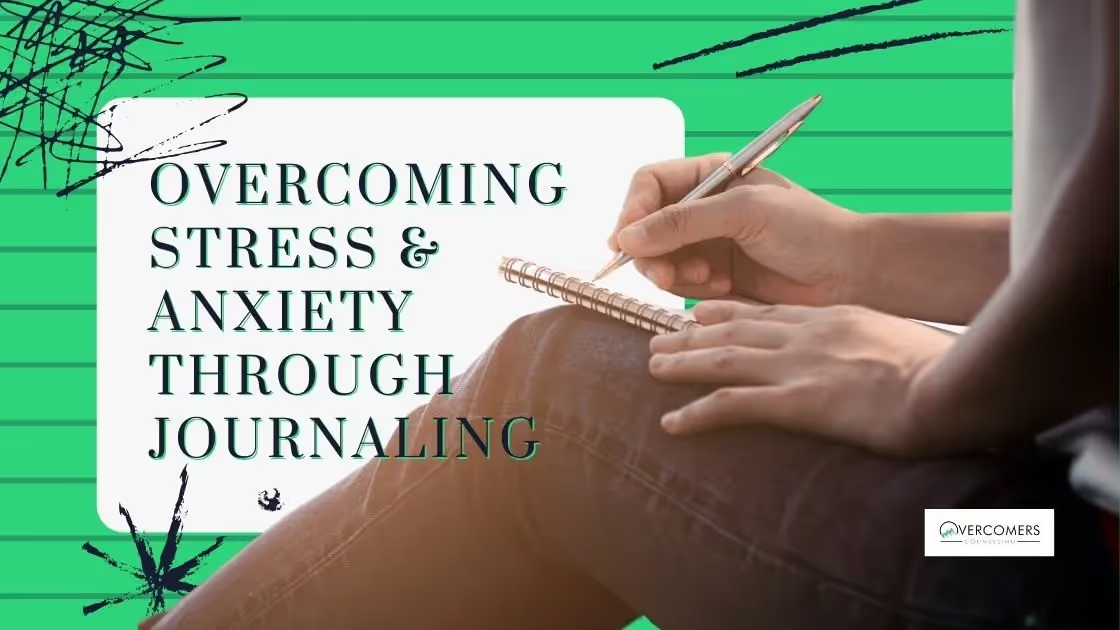We've all been there. Overwhelming, stressful times in our lives can push us over the edge and leave us looking for ways to cope.For some individuals, the...

We've all been there. Overwhelming, stressful times in our lives can push us over the edge and leave us looking for ways to cope.
For some individuals, the key to navigating tough days is as straightforward as embracing the outdoors and engaging in physical activity.
For others, the solace found in prayer, meditation, or the comforting presence of loved ones proves invaluable during trying periods.
Regardless of your preferred method of stress management, incorporating a journaling practice can be an enjoyable and potent tool for confronting stress and anxiety disorders when they emerge.
Journaling for anxiety, with its expressive writing and use of anxiety journal prompts, provides an effective way to manage anxiety and relieve stress. It serves as a safe space to pour out anxious thoughts and feelings, aiding you on your mental health journey.
By using anxiety journaling, you can gain insight into what triggers your anxious feelings and devise strategies to enhance your well-being.
So, whether you feel anxious due to a particular situation or are grappling with ongoing anxiety, journal prompts can guide you towards better self-understanding and stress relief.
Journaling, which simply means writing your thoughts in a journal or diary, is free and easy and so effective at reducing stress and anxiety.
For some, journaling is a lofty concept and they aren't sure where to begin, so they never try.
While it's true that journaling can take on unlimited forms, it can be made super simple by following these 3 guidelines.
Find a time of day you have the most swirling thoughts.
This will be the ideal time of day you set aside for journaling.
It can be as little as 3-5 minutes or as long as you feel you need to get your thoughts and ideas out on paper.
There is no wrong time to journal, but building it into your daily routine helps make journaling a habit.
Nighttime journaling can be a great time to brain dump before bed for a better night's sleep.
Similarly, journaling first thing in the morning can help set your focus and prepare you for the day ahead.
If you aren't sure when is the best time for you try out different times in the day and see which journal entries flowed more freely.
There is no wrong time to journal so find a time of day and then stick to it.
You may find it helpful to compose each entry with a list of three things.
For example, start each entry with three things you are grateful for.
Similar to writing a grocery list, the simple act of writing these things out onto paper and being able to see them in front of you helps your mind remember the list even when it's gone.
When you are constantly reminded of the things you are grateful for it helps put into perspective the stressful situation you are facing because you remember all the wonderful and positive things in your life.
Gratitude has not only the powerful to help you feel less stressed and anxious, it helps you overcome the feeling of helplessness and depression.
The act of writing things you are grateful for daily creates a habit in your mind to be looking for these things always.
Its like bio-hacking your mind with rose-colored glasses.
The practice of writing three things you are grateful for each day will have your mind dwelling on these things instead of negative emotions.
Other things you can list are-
Starting with lists of three is a great springboard to any journal entry.
Use it as a starting point and find a number or theme that works best for you!

Once you've gotten what you've needed to put on the paper, close the journal and walk away.
Try not to go back and re-read entries right away.
Don't feel closure yet? It's okay to keep writing.
But once you're done, be done for that day.
In time you will find that your mind will recognize the blank pages as the correct context to let go of your stress and anxiety.
Similarly, the closing of the journal will act as a mental switch back to your status quo.
By giving your stress and anxiety a proper channel to process emotions in, you have fewer anxious disruptions in your daily life and relationships.
Having this framework built into your daily lifestyle helps you feel more prepared when stressful situations arise because you will have a plan in place for managing your thoughts and emotions.
Building a habit of journaling becomes like a tool in your tool belt for overcoming stress and anxiety.
With the proper tools, we can feel more empowered to handle any situation as it comes our way.
In today's ever-changing world, journaling is a habit people of all ages can benefit from.
Journaling helps us navigate change, overcome worries and anxieties, and feel more balanced throughout the day.
Imagine what a difference it would make in your life today if you overcome stress and anxiety and start your journaling journey today!
Other activities which have been found helpful in reducing both immediate feelings of anxiousness and long-term anxieties associated with chronic disorders include yoga, journaling, nature walks, art therapy, volunteering, and other low-stress activities. Additionally, developing a healthy lifestyle incorporating adequate sleep, physical activity, and nutritious meals can help reduce overall stress levels.
The duration of anxiety counseling varies for each individual, depending on the severity of their anxiety and their progress in therapy. Our therapists will regularly assess your progress and adjust your treatment plan as needed.
It's important that you feel comfortable discussing personal matters with your therapist in order to open up and get more out of therapy sessions; therefore finding someone who meets certain criteria like experience level, expertise areas, and personality is key when selecting a therapist who can give meaningful feedback about how best handle issues related to anxiety or other mental health concerns.
Yes, Medicaid provides insurance coverage for therapy services specifically designed to help individuals struggling with anxiety, depression, and other mental health conditions.
Ignoring anxiety can exacerbate symptoms and make it more challenging to manage over time. This can result in a negative impact on your personal, professional, and social life, leading to feelings of isolation and even depression.
Addressing anxiety is crucial because it can significantly impact your quality of life and overall well-being. Left untreated, anxiety can lead to more severe mental health issues, relationship problems, and difficulty functioning in daily life.